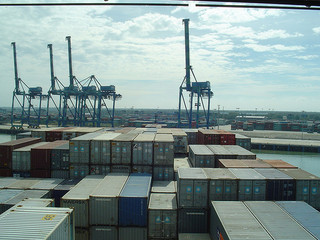 The call to abolish the cabotage policy in Malaysia has polarized the country, dividing it into those who see it as a hindrance to economic growth and fair competition and those who believe it is needed to protect the domestic shipping industry.
The call to abolish the cabotage policy in Malaysia has polarized the country, dividing it into those who see it as a hindrance to economic growth and fair competition and those who believe it is needed to protect the domestic shipping industry.
After the Sabah United Chinese Chamber of Commerce expressed its support for the scrapping of the policy, the Sabah Bumiputera Chamber of Commerce (SBCC) has come out to oppose the move, saying that by revoking the policy, foreign shipping companies would find it an opportunity to get involved in domestic trade.
“There has never been a sovereign country who has allowed foreigners to ply their domestic waters,” said SBCC Honorary Treasurer Datuk Roselan Johar Mohamed, as reported by Bernama, Malaysia’s national news agency.
Roselan added that dissolving the cabotage policy to solve the disparity in the prices of goods between Peninsular Malaysia and Sabah and Sarawak might do more harm than good to the shipping industry.
The business community in Sabah and Sarawak has long repudiated the cabotage policy, citing it for the price imbalance of merchandise between the peninsula and Sabah and Sarawak.
Under the existing policy, only Malaysian-flagged ships are allowed to transport locally manufactured goods from the peninsula to Sabah and Sarawak.
Sabah Progressive Party president Datuk Seri Yong Teck Lee, who favors the abolition of the law, said that if Malaysia insisted on holding on to the cabotage policy, it must look for ways to offset the adverse effects.
“For instance, the Australian federal government provides RM300 million per year for the Tasmania Freight Equalisation Scheme to alleviate the tariff costs disadvantage faced by the Tasmanian island economy,” he said.
Meanwhile, Datuk Seri Wong Khen Thau, president of the Federation of Sabah Industries (FSI), said local businesses were not able to raise their export volumes due to the policy.
Wong, who noted FSI was not against the policy, demanded, however, a “win-win” formula of fair trade, such as full liberalization, tax exemption, or a subsidy program. Or else, make Sabah a major shipping hub replacing Port Klang, he added.
Jimmy Wong Sze Ping, Democratic Action Party (DAP) Sabah chairman, earlier challenged the government to abolish the cabotage policy because it was supposedly the main cause of a 30 percent hike in the prices of goods in Sabah.
But Luyang Assemblyman King Cheu Hiew posited that the shipping charges were high because of the trade imbalance between East and West Malaysia, where volume on the backhaul cargo from East to West Malaysia was insufficient, causing ships to charge higher freight rates.
Hiew said that the country’s cabotage policy was established in the 1980s solely to develop Malaysian-owned shipping businesses, including those from Sabah and Sarawak.
“This policy is a relatively liberal policy, the same as in other countries like Japan and the United States of America which is enforced fully so that foreign registered ships are not allowed to operate,” he pointed out.
For his part, DAP Sabah organizing secretary Junz Wong said the cabotage policy was preventing domestic shipping companies from growing because they have been coddled from competition for almost three decades.
Said Junz, “There is nothing wrong in allowing foreign shipping companies to come in when domestic shipping companies refuse to grow after almost 30 years though given various incentives.”
“Removing the cabotage policy will no doubt increase competition, and ensure fairer pricing for all and, most importantly, restore justice to Sabah and Sarawak,” Junz added, as quoted by local media.
Photo: Blue Ship




